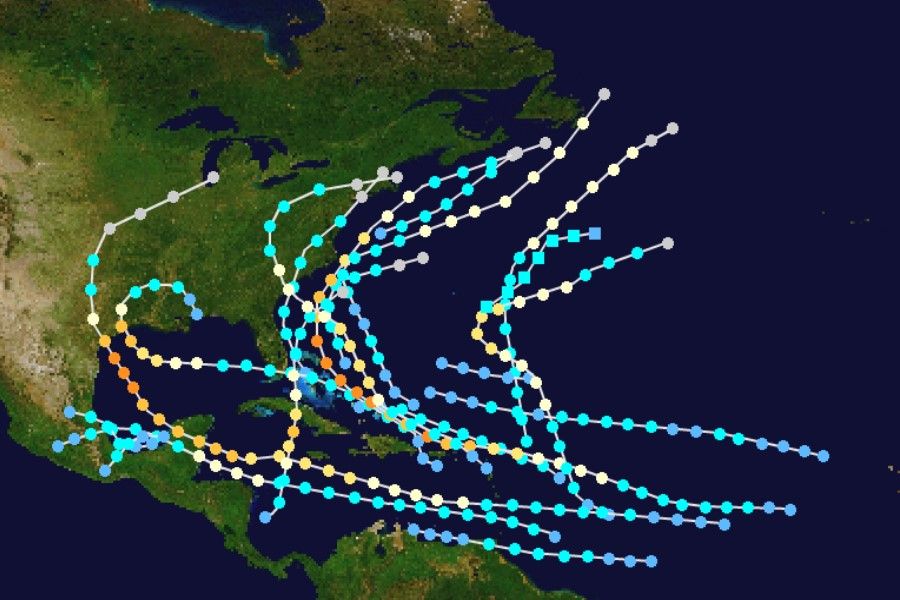Coming off the record setting year of 2020 that took us through all 21 letters in the alphabet that are available to be used for naming storms (Q, U, X, Y, and Z are not used) and well into the Greek letter system for only the second time since hurricane tracking began. Weather experts are expecting another above average season in 2021.
We hope not to top the 30 named storms that developed in 2020, of which 13 became hurricanes (winds greater than 74mph), and six of those 13 storms were major hurricanes (winds greater than 111mph) but expect it to be a busy season in 2021. Colorado State University, one of the nation’s top hurricane forecasting resources, has predicted 17 named tropical storms, of which eight are targeted for developing into hurricanes. Of these eight storms, the group of scientists predict that four of these will turn into major hurricanes.
The reasons cited by the weather scientist for the above average year of hurricane activity along the United States coast and Caribbean are weak La Niña conditions and warmer than normal subtropical Atlantic sea surface temperatures. Look below to see the data trends that have developed from hurricane activity since 2017:
YEAR # OF NAMED STORMS # OF HURRICANES DEVELOPED
| 2017 | 17 | 10 |
| 2018 | 15 | 8 |
| 2019 | 18 | 6 |
| 2020 | 30 | 11 |
| 2021 | *17 (predicted) | 8* (predicted) |
Hurricane season officially kicks off June 1st and runs through November 30th.
Keep in mind last year we had our first named storm, Arthur, that formed on May 16, 2020, so it is never too early to start developing a plan of action as you prepare for the upcoming season. We want to remind all our clients and followers that May 9 – 15, 2021 is National Hurricane Preparedness Week. Be familiar and understand the terminology that your region will encounter and act accordingly.
A hurricane watch indicates the possibility that a region could experience hurricane conditions within 48 hours.
A hurricane warning indicates that sustained winds of at least 74 MPH are expected within 36 hours.
Being armed with this information and actively engaging your specific hurricane preparedness plan (HPP) will allow for your family or business to be fully prepared, which could help mitigate your loss potentials and exposures to such events.
Stand guard with Sentinel.
We look to the experts in the weather field to help us understand the activity that we can expect regarding hurricanes; however, leave it to Sentinel Risk Advisors to help you plan and prepare for any hurricane event. For a full listing of resources related to hurricane preparedness, please contact Dana Vorholt, Director of Risk Engineering at dvorholt@sentinelra.com for more information.

